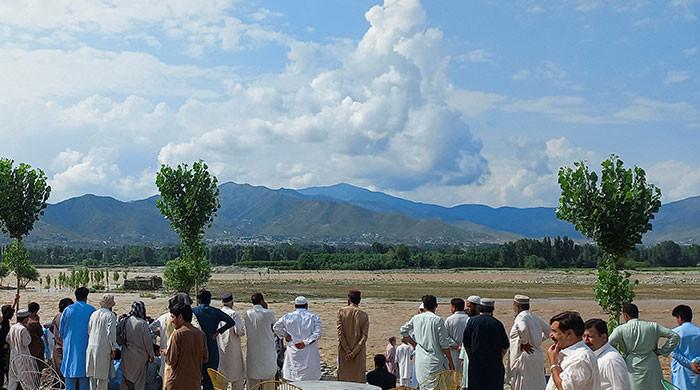KP Govt Report Reveals Lapses in Swat River Tragedy
A recent fact-finding report by the Khyber Pakhtunkhwa government has brought to light critical failures within the provincial administration concerning the Swat River incident, which tragically resulted in the deaths of a dozen tourists last month.
The investigation, conducted by the Culture and Tourism Department, reveals a significant absence of the Tourism Department at the scene. The report highlights a lack of proactive safety management, and the official tourist helpline (1422) was not utilized, demonstrating inadequate public awareness initiatives.
The Swat River incident occurred on June 27 when 17 members of a family, picnicking by the river, were unexpectedly swept away by a powerful surge of water.
Distressing videos that were widely shared online showed the family trapped on a diminishing island of land, pleading for help for approximately an hour without any immediate rescue efforts.
While several tourists were saved, the remains of Abdullah, a child from Sialkot, were recovered after 21 days in the Barikot tehsil of Swat district.
Since the tragedy, numerous writ petitions have been submitted to the Peshawar High Court, alleging negligence and indifference on the part of the government and related departments.
Following an order from Peshawar High Court Chief Justice SM Atique Shah for a transparent investigation, the provincial government tasked the Provincial Inspection Team with conducting the probe.
The five-page report emphasizes the Culture and Tourism Authority’s (CTA) failure to license hotels in popular tourist areas. It also mentions that the Tourism Police’s jurisdiction was limited to upper Swat under the Development Authority, leaving crucial areas such as Fizagat unattended.
The fact-finding committee noted the absence of regulation or accountability for travel agents, stating that neither the Administrative Department nor the CTA implemented any visible regulatory or safety enforcement. The committee suggests the CTA focused more on event management than regulatory duties, leaving tourists vulnerable and uninformed.
The Culture Department’s report mentions that a private hotel was constructed on encroached riverbed property without the required NOC or approved building plan. The hotel management permitted unrestricted access from the premises directly to the riverbed.
The report states, “Despite repeated weather warnings, no effort was made to caution guests, put up barriers, or restrict movement. This failure to protect guests constitutes gross negligence, especially considering the hotel’s proximity to the riverbed and the prevailing environmental conditions.”
The report holds the private hotel’s management accountable for the incident due to their negligence, inefficiency, and lack of professionalism. It recommends filing a case under the Pakistan Penal Code (PPC) against the hotel’s lessor and lessee.
The report advises that “The Authority [CTA] must establish a licensing system for hotels and hospitality businesses operating in tourist locations.”
The report also calls for the distribution of tourism and safety information through media channels, the creation of tourist assistance centers at main entry points to popular destinations, and a detailed directory of tourist destinations in the province, which should be updated and promoted.
The report concludes, “Tourism police must be stationed at all tourist destinations in Swat. Travel agents operating both inside and outside the province should be regulated and required to adhere to standard safety procedures.”
Additionally, the report advises hotels to secure a seasonal compliance certificate for monsoon operations to ensure guest safety and restrict access to riverbanks.



Comments (0)
No comments yet. Be the first to comment!
Leave a Comment